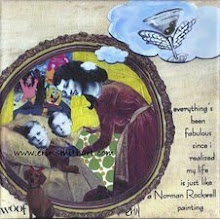October is Domestic Violence Awareness Month. Taken from the National Coalition Against Domestic Violence (NCADV) here are a few facts.
"Women with developmental disabilities have among the highest rates of physical, sexual, and emotional violence perpetrated by intimate partners and family members. Individuals with disabilities are at a greater risk of severe physical and sexual violence than people without disabilities. Many people with disabilities who are victims of violence experience multiple assaults. Domestic abuse victims with disabilities are often more dependent on their caretakers than victims without disabilities, and face many barriers to reporting abuse and seeking services. Victims who do report abuse or seek services often do not find adequate help, since many programs that serve Domestic Violence victims are not equipped or trained to offer proper care to victims with disabilities." Women with disabilities are three times more likely to be sexually assaulted than women without disabilities.
"Women with developmental disabilities have among the highest rates of physical, sexual, and emotional violence perpetrated by intimate partners and family members. Individuals with disabilities are at a greater risk of severe physical and sexual violence than people without disabilities. Many people with disabilities who are victims of violence experience multiple assaults. Domestic abuse victims with disabilities are often more dependent on their caretakers than victims without disabilities, and face many barriers to reporting abuse and seeking services. Victims who do report abuse or seek services often do not find adequate help, since many programs that serve Domestic Violence victims are not equipped or trained to offer proper care to victims with disabilities." Women with disabilities are three times more likely to be sexually assaulted than women without disabilities.
"When a victim of abuse leaves a violent relationship it is often a particularly vulnerable time. We need to make sure that we are doing everything that we can for victims in this critical period to ensure that folks who are seeking help and protection get that help and get that protection. That's our responsibility. So these are just a few of the steps that we are taking but this bottom line is this; nobody in America should live in fear because they are unsafe in their own home. No adult, no child. No one who is a victim of abuse should ever feel that they have no way to get out. We need to make sure that every victim of domestic violence knows that they are not alone, that there are resources available to them in their moment of greatest need. As a society we need to make sure that if a victim of abuse reaches out for help, we are there to lend a hand. This is not just the job for government. It's a job for all of us." (President Obama)
And now, more information to think (or puke) about...
•Studies estimate that 80% of women with disabilities have been sexually assaulted.
•One study showed that 47% of sexually abused women with disabilities reported assaults on more than ten occasions.
•Children with disabilities are more than twice as likely as children without disabilities to be physically abused, and almost twice as likely to be sexually abused.
•Studies estimate that between 70% and 85% of cases of abuse against adults with disabilities go unreported.
•One study found that only 5% of reported crimes against people with disabilities were prosecuted, compared to 70% for serious crimes committed against people with no disabilities.
Taken from the National Coalition Against Domestic Violence (NCADV)
All you need to do is spend a few minutes at the International Coalition on Abuse and Disability (icad) to see just how prevalent this is.
For more information or to get help, please contact:
The National Domestic Violence Hotline at 1-800-799-SAFE
The National Sexual Assault Hotline at 1-800-656-HOPE











2 comments:
thank you for posting this. one of my biggest fears, but it's so important for people to recognize that we have to be vigilant caregivers and really pay attention to who our children spend time with... I worry so much about their vulnerability...
Thanks for commenting Lisa. Usually my readers run from posts on this subject, I suspect because of our shared fear. It is scary to face, but scarier yet is ignoring this serious issue.
---Jen
Post a Comment